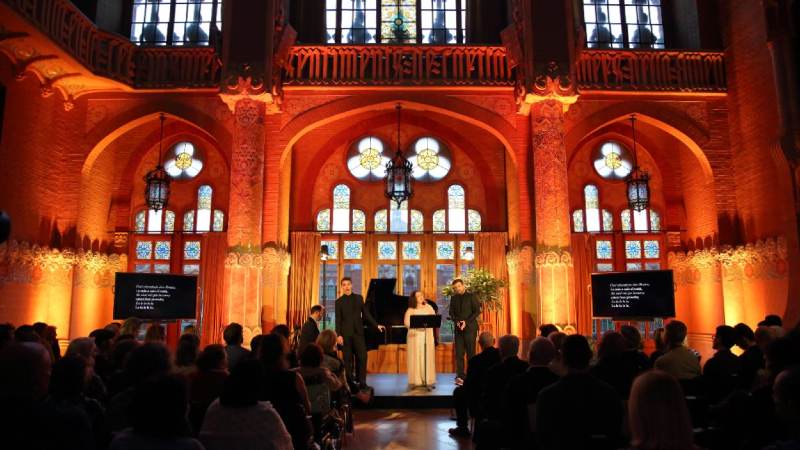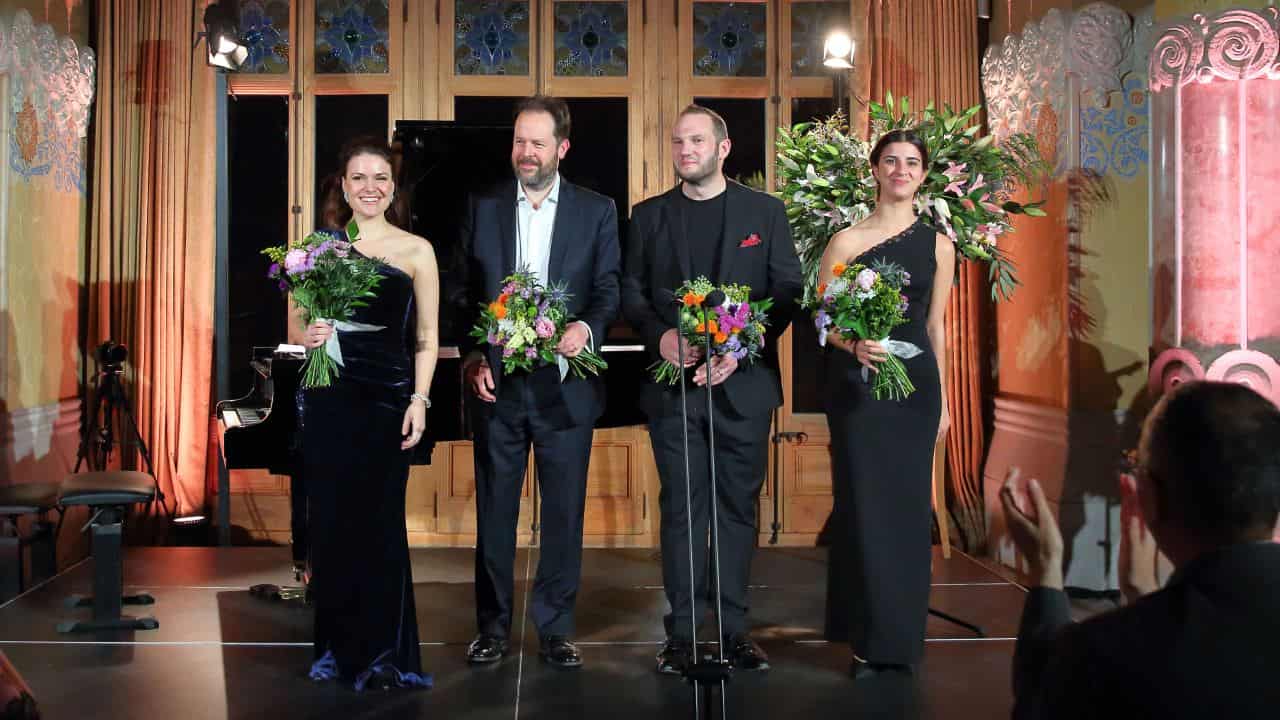In the Vienna of Schubert's time, Rossini was an immense figure. Il barbiere di Siviglia became tremendously popular when it was first performed there, and the Pesaro-born composer's music caused such a sensation that it became known as Rossini fever. Although Schubert did not surrender unconditionally to Rossini's music, like most Viennese, he did state that "one cannot deny that he is a genius". Schubert tried to find his way into the operatic genre without success, with forays such as Fierrabras or Das Dreimäderlhaus, which were premiered after his death and which, unlike his cycles, have never entered the great repertoire. In this scenario, it is not unreasonable that the composer absorbed, consciously or unconsciously, influences from Rossini in the composition of his operas. Martin Hässler returns to the Festival accompanied by Marta Fontanals-Simmons, in her Festival debut, and a group of regulars such as Mercedes Gancedo, Ruzhe Li and Mar Compte.
Mercedes Gancedo, soprano
Marta Fontanals-Simmons, mezzosoprano
RuZhe Li , tenor
James Atkinson, baritone
Sholto Kynoch, piano
Mar Compte, piano
Program
I
Franz Schubert (1797-1828)
Ouvertüre im Italienischen Stil
Gioachino Rossini (1792-1868)
Canzone del salice d’Otello
Wolfgang Amadeus Mozart
An Chloë K524
Franz Schubert
An Silvia D891
Trinklied D888
Gioachino Rossini
"La Partenza" from Soirées Musicales
Les amants de Seville
Franz Schubert
Vier Canzonen D688
Non t'accostar all'urna
Guarda, che bianca luna
Da quel sembiante apprèsi
Mio ben ricordati
Ständchen, D957/4
II
Gioachino Rossini
"Oh mattutini albori!" from La donna del lago
Franz Schubert
Raste Krieger D837
Ave Maria D839
Des Tages Weihe D763
Gondelfahrer D808
La Pastorella D528
Drei Gesänge D902
Gioachino Rossini
I gondolier



